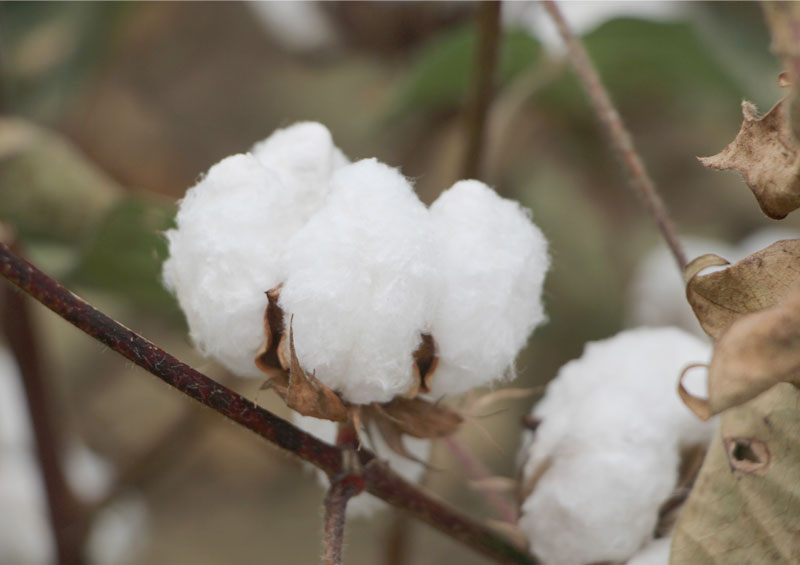ELS Cotton: The Short Haul To Increase Farmers’ Incomes!

Many of us in India may not know that India tops the world in the production of cotton fibre in terms of quantity. Fewer people know that the world’s best cotton fibre ‘Suvin’ is produced in Tamil Nadu.
‘Suvin’ is a domestically nurtured cotton variety that has been recognized as the world’s best extra-long staple (ELS) cotton. The agro-climatic conditions required to cultivate this variety of cotton successfully is found only in certain parts of Tamil Nadu.
The demand for ELS cotton is high among the Indian textile manufacturers who primarily target exports. However, India unfortunately produces only about 5 lakh bales of ELS cotton annually, whereas the annual demand for the same is around 15-20 lakh bales.
The Government of India in its budget for the year 2023-24 has incorporated special efforts to encourage the production of ELS cotton so that exporters do not have to expend their valuable foreign exchange on importing ELS cotton fibre. In addition, ELS cotton farming is also expected to increase farmers’ income due to the high price this variety fetches in the market.
However, the farmers have to be motivated to cultivate ELS cotton, since there are issues like lesser productivity and other risks involved in its cultivation.
‘Suvin’ cotton is known for its extra-long staple length which is higher than other ELS varieties. However, due to non-availability of adequate seeds, other varieties of ELS cotton have been introduced. But there is an urgent need to increase awareness among cotton farmers about not only the commercial value of ELS farming, but also about modern farming techniques that will help increase productivity and also reduce risks in the cultivation of ELS cotton.
As a part of a pilot project, the government has allocated Rs 3 crore to take steps in collaboration with Central Institute for Cotton Research, Nagpur, to increase the productivity of ELS cotton. A master plan has also been approved by the Government of India with a budget allocation of Rs 0.42 cr for a cluster-based value chain approach to increase the yield of ELS cotton.
With increased focus on ELS cotton, it is hoped that Tamil Nadu will soon be a supplier of ELS cotton to meet the surging demand of this high quality cotton.
To promote ELS cotton, both the central government and state government need to work in coordination to ensure both technological support of newer varieties of seeds and also offer adequate help in marketing this produce so that farmers can realize highest price prevailing in the global market. Insurance against price fluctuation will also be essential, in addition to subsidies to farmer groups. ELS cotton should ultimately be cultivated by groups of farmers on the principle of ‘one area, one variety’. This is important because uniformity in fibre length increases the prices.
If all the suitable land in Tamil Nadu is brought under the cultivation of ELS cotton and if the research on increasing productivity bears fruit, then India can not only stop spending foreign exchange on import of ELS cotton, but also earn foreign exchange from the increased volume of textile exports. And all of this will ultimately lead to the realization of the dream of doubling farmers’ incomes.
(Dr. P. Alli Rani is the author for this article. She is the Director of Sardar Vallabhbhai Patel International School of Textiles and Management, Coimbatore)














